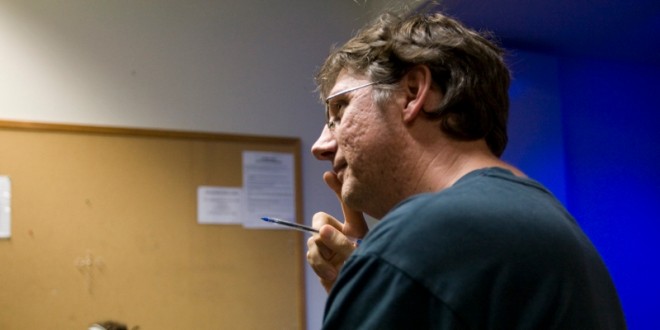Special interests in Asperger's Syndrome and ASD take many forms and were noted by Hans Asperger in his original description of the condition (Asperger, 1944). Such interests are considered to be "encompassing" (American Psychiatric Association, 1994) and "to the exclusion of other activities" (Gillberg & Gillberg, 1989). The actual focus of the interest may be unusual, such as collecting keys, shopping catalogues, paper clips, fascination with washing machines, or the shades of green in a plate of peas. In other cases the attention is held by more "normal" things such as fantasy books, soccer scores, art or music. The focus tends to be THINGS or objectified people, such as celebrities. The signifier however is the intensity with which the special interest is pursued and Gillberg's description gives an indication of this. Conversation with an Asperger will find its way very quickly back to the topic, whether the listener is interested or not. Activities as fundamental as eating or toiletting may be interrupted or not initiated in favour of the activity. Tony Attwood indicates that special interests tend to be either "collections" or the "acquisition of knowledge or expertise" (Attwood, 2008, p. 179) and that either can mature into the person becoming a significant expert in a narrow field. In personal conversation he has indicated to me that he finds many Asperger individuals with extreme expertise in very narrow fields of specialty, or work that requires very intense concentration on one activity for long periods of time. He cites individual mathematicians, film special effects and animators, NASA engineers, theoretical physicists and musicians as being Aspies who have turned their obsessive pursuit of specific knowledge into highly successful professions - despite difficulties interaction with their colleagues. He writes "I have noted that some careers and professions are particularly appropriate for people with Asperger's syndrome. Universities are renowned for their tolerance of unusual characters, especially if they show originality and dedication to their research. I have often made the comment that not only are universities a 'cathedral' for the worship of knowledge, they are also 'sheltered workshops' for the socially challenged" (ibid. p. 301).
Special interests are not necessarily maintained continuously, and a person may have more than one, with different obsessions in focus at a given time. In my own case, I have been obsessed with sound and sound making for a very long time, whether it is in the air or in my head, and have been lucky in that I have been able to make a reasonable living. This "special interest" has certainly been encompassing and followed to the exclusion of other activities, interrupted other important aspects of my life and relationships and been a continual drain on personal and family finances. I have discussed the nature of music as a special interest in its own section however and at this point a slightly more abstract concept.
It is my belief that my central "special interest" is in the making of meaning. Whether this has been present all along or has come into focus more recently, I am not sure.
For someone with Asperger's Syndrome or autism, meaning in the social world is elusive. People are difficult to read. Communication is impaired - verbal language can be affected by local coherence focus, literal interpretation or auditory processing issues, and non-verbal modes may also be affected, with weaknesses in interpreting facial and bodily gesture. Empathy is usually weak, so "intuitive" responses may not be sufficiently strong or accurate to be effective in social situations.
It is perhaps not surprising that someone who is forced to use cognitive and intellectual means to understand his social environment might become interested in the process. I have a history of interest in scientific and metaphysical means to understanding in my youth and adolescence. Books on body language, Jungian personality astrology (character not prediction), thesaurus and studies of idioms, metaphors and sayings. My favourite book as a fifteen year old was Dostoyevsky's The Idiot, about a man who always told the truth and did not understand the social implications of his actions. I looked for truth, meaning and rules to live by in religion and became a Baha'i at eighteen.
I now understand that this interest in meaning was driven by the lack of it, and I would go so far as to suggest that this research has both stimulated and fuelled this obsession.
However, one consistent and persistent pursuit in my life has been theatre and more recently film. Specifically sound design and music that are part of the process of creating, exploring and transmitting meaning and social relationships. Along with the images and music included in this dissertation I will also explore the manner that the meaning-making process in theatre, and my musical processes relate to my experience as a person with Asperger's Syndrome.
Related Posts
- Music as a Special Interest: Music is a useful special interest to have, but has a more sinister side.
- Criteria for Diagnosis of Asperger's Syndrome: The American Psychological Association's Diagnostic and Statistical Manual - version IV and Gillberg criteria for Asperger's Syndrome.
- Theatrics: The theatre has been a school of meaning-making. Layer on layer of elements to the same end.
- Aspergation: Sharing music with my muses.
- Researchers: Describe your own world because, especially if Theory of Mind is an issue, your subjects may not know just how different they are.
- Glasnost: The policy of glasnost - openness - has been adopted for the sake of altruistic motivations. Maybe ...
- What is ASD?: A brief overview of the Autistic Spectrum and the traits associated with it.
